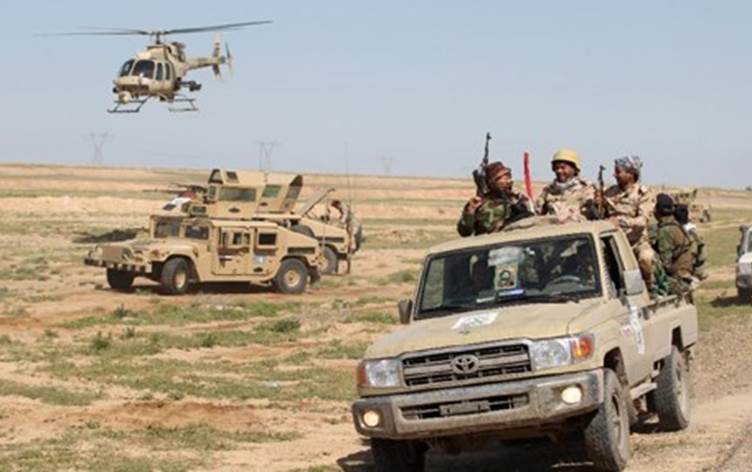ERBIL, Kurdistan Region- An Iraqi official announced Sunday that the Islamic State (ISIS) has started to withdraw from the town of Rutbah in western Anbar province.
According to Eimad Ahmed, the mayor of Rutbah, the ISIS militants have left the town of Rutbah completely and headed towards the town of Qaem near the Jordanian border.
Ahmed believes that there are two reasons behind the withdrawal from Rutbah. The first reason could be their latest failures in different battlefronts and heavy casualties. The second could be that they want to test the local population and see who is working with the Iraqi army in their absence.
He believes this is an opportunity for Iraqi troops to move in and control the town.
Eid Amash, a spokesperson for the Anbar provincial council told Rudaw that ISIS has withdrawn from several towns in Anbar after their recent defeats.
Amash believes that ISIS cannot stand the coalition air strikes and advances by the Iraqi army.
“The Iraqi forces are on advance and only today they managed to reach Mhamadia which is only 7 km away from Hit district,” he said.
According to Eimad Ahmed, the mayor of Rutbah, the ISIS militants have left the town of Rutbah completely and headed towards the town of Qaem near the Jordanian border.
Ahmed believes that there are two reasons behind the withdrawal from Rutbah. The first reason could be their latest failures in different battlefronts and heavy casualties. The second could be that they want to test the local population and see who is working with the Iraqi army in their absence.
He believes this is an opportunity for Iraqi troops to move in and control the town.
Eid Amash, a spokesperson for the Anbar provincial council told Rudaw that ISIS has withdrawn from several towns in Anbar after their recent defeats.
Amash believes that ISIS cannot stand the coalition air strikes and advances by the Iraqi army.
“The Iraqi forces are on advance and only today they managed to reach Mhamadia which is only 7 km away from Hit district,” he said.




Comments
Rudaw moderates all comments submitted on our website. We welcome comments which are relevant to the article and encourage further discussion about the issues that matter to you. We also welcome constructive criticism about Rudaw.
To be approved for publication, however, your comments must meet our community guidelines.
We will not tolerate the following: profanity, threats, personal attacks, vulgarity, abuse (such as sexism, racism, homophobia or xenophobia), or commercial or personal promotion.
Comments that do not meet our guidelines will be rejected. Comments are not edited – they are either approved or rejected.
Post a comment